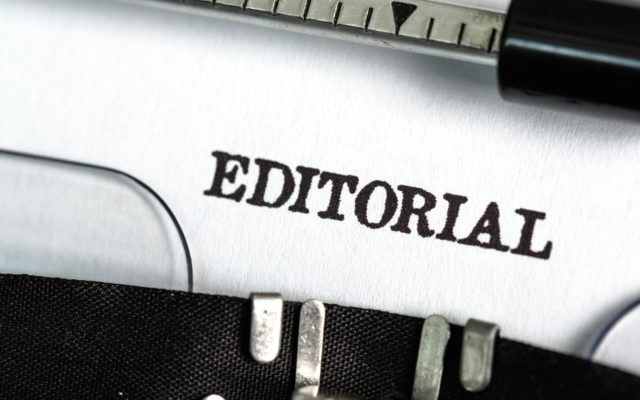We are now about two years removed since the start of the pandemic, and the unfortunate reality is that this virus is still very much a part of our lives. While there continue to be ideological divisions on how society should function amid a global pandemic, seemingly everyone can agree that internet access plays a more pivotal role than it ever has.
Whether it be students relying on remote learning, business professionals utilizing online conference calls or seniors using telehealth services, Americans of all ages and from all walks of life have relied on high-speed internet to make life easier. But there are still over 14 million Americans that lack access to this vital resource, meaning that as we continue to transition toward a more internet-dependent world, those without it fall further behind. This divide has had a profoundly negative impact on students, as a well-documented “homework gap” has emerged for children lacking suitable digital resources who have struggled to keep up in school.
With this modern crisis in mind, it is refreshing to see that federal lawmakers from both sides, including in Maine, have come together to find solutions that level the playing field. The bipartisan infrastructure law that was passed toward the end of 2021 allocates $65 billion in funding to help get every American connected to high-speed internet.
The bulk of that funding is aimed at broadband expansion projects, predominantly in rural areas that typically aren’t financially appealing to deploy broadband in, requiring public and private entities to coordinate with one another to connect the remaining unserved homes. This law has the potential to be as impactful as the rural electrification effort in the early 20th century, and will finally provide every American with access to this crucial resource that will help them in the areas of health, education, employment and more.
But this much needed progress won’t happen unless policymakers update an obsolete and inefficient process: rules governing access to utility poles.
Utility poles, which connect homes with telephone service, electricity, and broadband, are the foundation of our country’s communications infrastructure. Internet service providers don’t typically own these poles — utilities and co-ops do. So in order for providers to expand access they must be granted permission by pole owners to attach the necessary technology.
For access to poles, providers are required to pay pole owners a fee, which they have consistently been willing to, but rules regarding this negotiation process are unclear and overly-complex. If disagreements come up between broadband providers and pole owners, they take an unnecessarily long time to resolve, which culminates in delays that hold back would-be consumers, and increase project costs wasting our tax dollars.
Those hurt most by this antiquated process are the unserved communities — the students who fall behind in school because they can’t learn remotely, the people who are deprived of the wide array of professional resources that high-speed internet provides, and older patients who can’t access time and life-saving telehealth services.
The longer we wait to fix this, the further our inequities will grow, especially for our rural communities. Policymakers in Washington, D.C., have found the commonsense solution to these broadband issues before, but in order for the bipartisan infrastructure law to reach its full potential, we must modernize pole rules so that the unserved can get connected quickly.
To do this, first, lawmakers must update the process for replacing out of date poles. Next, they can make the process more transparent by establishing and enforcing consistent timeframes for permits. Lastly, when disagreements between providers and pole owners do come up, there needs to be a system in place to resolve those disagreements as quickly as possible.
These solutions are not only common-sense, but cost the taxpayer nothing. Unserved communities in Maine are depending on our elected officials, let’s update the rules so we can close the digital divide in rural America once and for all.
Rep. Dustin White, R-Mars Hill, represents Maine House District 146, which consists of Blaine, Castle Hill, Chapman, Mapleton, Mars Hill, Perham, Wade, Washburn, Westfield and Woodland.








